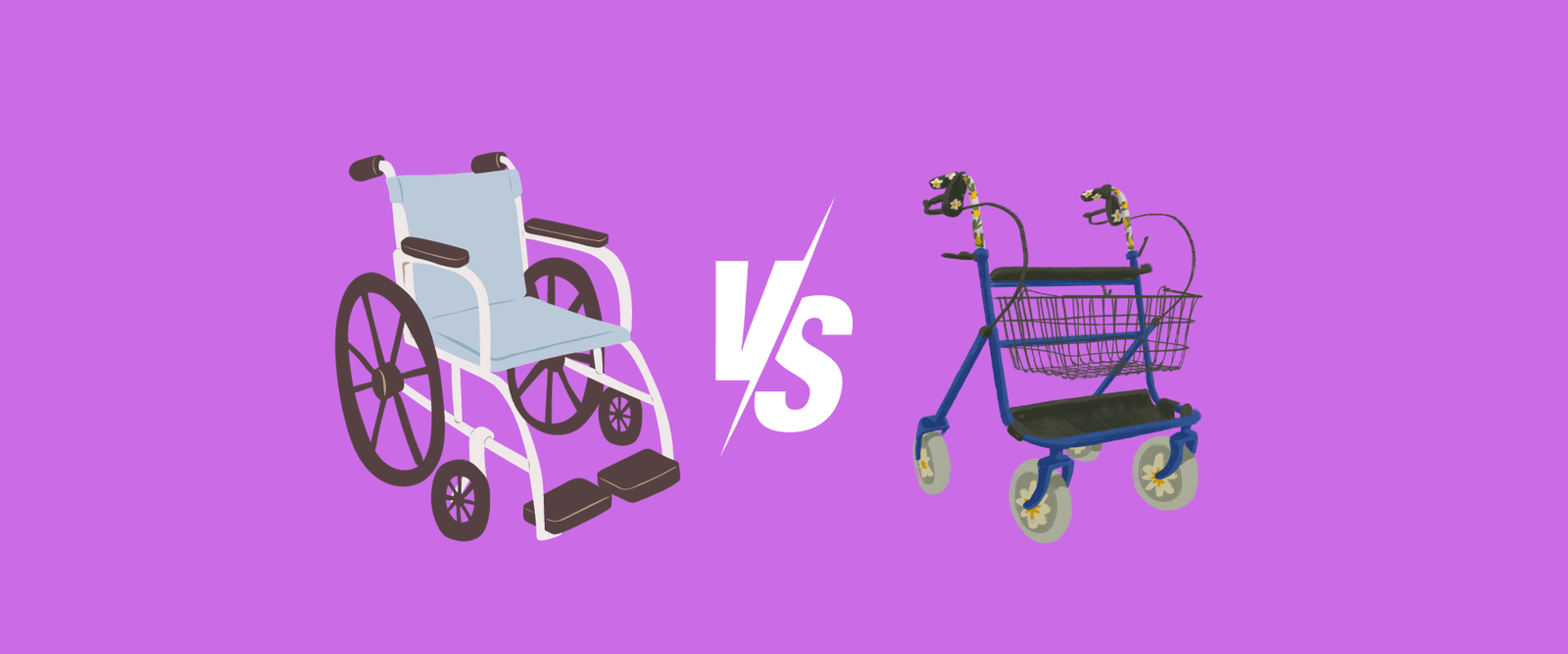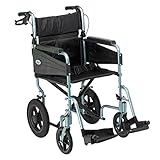Quick Answers
Wheelchairs: Seated Mobility: Provides a seated means of mobility for those with difficulty walking or limited leg strength. Independence: Offers a high level of independence for daily activities, with options for manual or electric self-propulsion. Indoor and Outdoor Use: Versatile for both indoor and outdoor environments, with models suitable for various terrains.
Rollators: Walking Aid: A walking aid for mild to moderate mobility limitations, aiding balance and stability during walking. Temporary Use: Often used during recovery from injuries or surgeries, not typically for long-term mobility needs. Storage and Transport: Lightweight, foldable, or collapsible for easy transport and storage when not in use.
Considerations: User Condition: Choose based on the individual’s specific condition; wheelchairs for severe impairments, rollators for temporary or mild to moderate limitations. Safety and Stability: Rollators offer additional stability, while wheelchairs provide more stability for significant mobility limitations. Duration of Use: Consider the expected duration of assistance needed; rollators are typically used for shorter-term mobility assistance.
Wheelchairs and rollators are vital mobility aids for individuals with various mobility challenges. While they share the goal of enhancing mobility, they have distinct features and serve different purposes. In this comparison, we’ll delve into the differences between wheelchairs and rollators to help you make well-informed decisions.
Wheelchairs
Seated Mobility
Wheelchairs provide a seated means of mobility for individuals who experience difficulty walking, have limited leg strength, or cannot walk. They are primarily used by individuals with significant and often permanent mobility impairments.
Comfort and Support
Wheelchairs offer a comfortable seated position with a backrest, armrests, and footrests, providing comprehensive upper and lower body support. They are designed for individuals who need to be seated for extended periods.
Independence
Users of wheelchairs can achieve a high level of independence in their daily activities as they can move around without relying on the support of others. They can self-propel manual wheelchairs using their arms or use electric wheelchairs.
Indoor and Outdoor Use
Wheelchairs are versatile and suitable for both indoor and outdoor use. There are models designed for various terrains, including rugged outdoor environments.
User Control
Wheelchairs can be self-propelled manually by the user using their arms or controlled via a joystick in the case of electric wheelchairs.
Storage and Transport
Wheelchairs can be bulkier and less portable compared to rollators. Some models can be disassembled or folded for more accessible transportation.
Rollators
Walking Aid
Rollators are walking aids for individuals with mild to moderate mobility limitations. They help individuals maintain balance and stability while walking.
Operational Effort
Using rollators requires minimal upper body strength and coordination. Users are expected to be able to walk but may need assistance in maintaining balance.
Temporary or Occasional Use
Rollators are often used during recovery from injuries, surgeries, or conditions that temporarily affect walking. They are not typically used for long-term or continuous mobility needs like wheelchairs.
Outdoor Use
Rollators are suitable for indoor and outdoor use and provide stability for individuals with difficulty walking long distances.
Storage and Transport
Rollators are lightweight and highly portable, often foldable or collapsible, making them easy to transport and store when not in use.
User Control
Rollators require the user to maintain balance and coordination while walking. They do not provide the same level of seated comfort and support as wheelchairs.
Considerations
User Condition
Choosing between a wheelchair and a rollator depends on the individual’s specific condition and mobility needs. Wheelchairs are suitable for those with severe or permanent mobility impairments, while rollators are often used for temporary or mild to moderate mobility limitations.
Safety and Stability
Rollators offer additional stability during walking but require the user to have some level of walking ability and balance. Wheelchairs provide more stability for those with significant mobility limitations.
Duration of Use
Consider whether the mobility limitation is expected to be temporary or permanent. Rollators are typically used for shorter-term mobility assistance.
Summary Of Wheelchairs Vs Rollators
In summary, the decision between a wheelchair and a rollator should be based on the individual’s specific mobility limitations, the anticipated duration of assistance needed, and the level of support and comfort required during mobility. Healthcare professionals can provide valuable guidance in determining the most appropriate mobility aid for each person’s unique circumstances.











